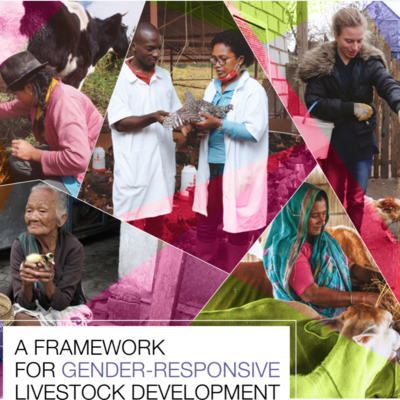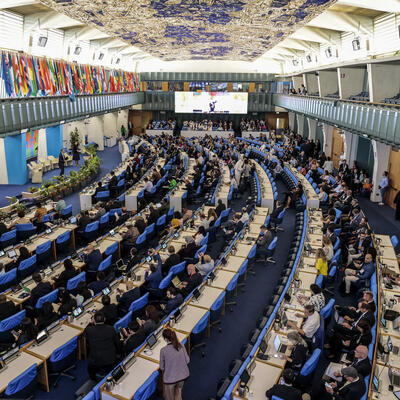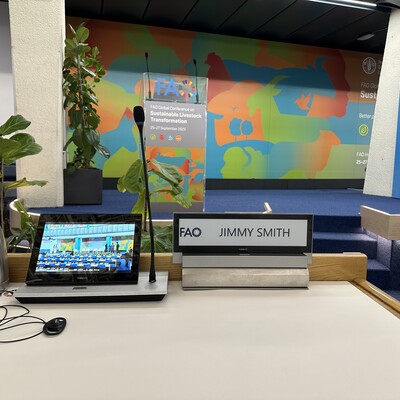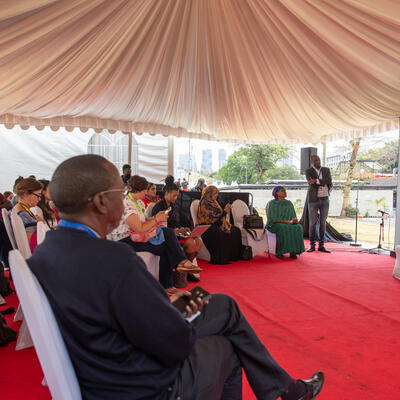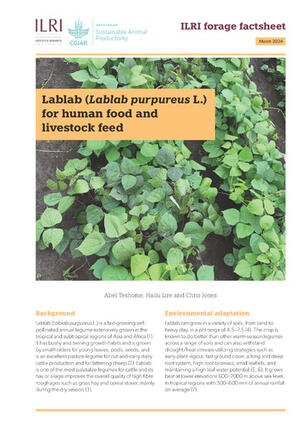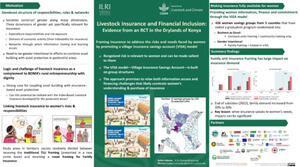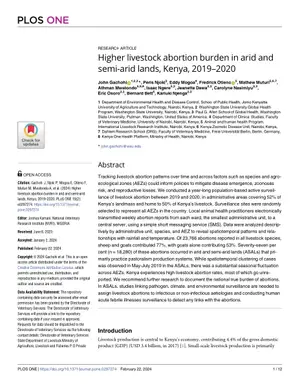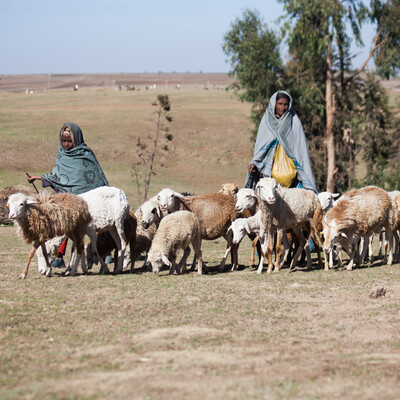
Pathways to prosperity: livestock technologies and community growth in East Africa
On 25 August 2023, the International Livestock Research Institute (ILRI) hosted a special presentation by Curtis Youngs, associate director of the University of Iowa's Center for Sustainable Rural Livelihoods (CSRL). The event, moderated by ILRI director general, Appolinaire Djikeng, spotlighted CSRL's commendable efforts in Kamuli, Uganda. Youngs delved deep into his experiences, sharing insights from transformative development projects in Uganda, but also in Ethiopia.
CSRL’s mission is deeply embedded in rural communities. Youngs articulated their holistic approach towards development – an endeavour that encompasses food security, financial well-being, educational excellence, accessible healthcare, civic participation, cultural preservation and environmental stewardship.
Empowering rural communities: The journey of the Center for Sustainable Rural Livelihoods
Iowa State University launched the CSRL in Kamuli, the second poorest district in Uganda, in 2003. With its very low GNI per capita of $250 at the time, Uganda was a fitting country choice for the CSRL’s development initiatives. The CSRL embarked on its mission by establishing nutrition education centres, which gave pregnant and nursing women free food in exchange for attending educational sessions. The women learned how to use locally available foods to craft nutrient-rich diets for themselves and their families. Building upon this foundation, the CSRL expanded its outreach to encompass all age groups, collaborating with a local non-governmental organization (NGO), Volunteer Efforts Development Concerns, and Makerere University.
Success in Uganda and Ethiopia: Pioneering livestock and animal health initiatives
In 2003, the CSRL created the Livestock and Animal Health Program as a versatile umbrella initiative, containing multiple important projects. Among these is the School Lunch Program, which provides a route to economic security through school-based chicken farming. The CSRL allocates funds for the purchase of chickens in schools. The eggs produced become part of school lunches, while surplus eggs are sold for profit. To amplify productivity, solar panels were introduced to the schools, as increased sunlight exposure boosts egg production. Other initiatives have included on-farm training for farmers in animal health, transitioning to more effective livestock (like shifting from Mubende goats to Galla goats) and supporting women’s inclusion in poultry farming.
Youngs has headed extension projects by the CSRL, such as aiming to enhance local livestock quality and efficiency to increase milk production. More effective livestock yields more milk, thereby providing nutritional needs for more people. Surplus milk also allows farmers to sell the extra product to generate an income. This is particularly crucial in Ethiopia, where the per capita milk consumption is just 11% of the World Health Organization’s recommendation. To counter this issue and increase milk consumption in rural regions, Youngs used animal embryo biotechnologies to support the production of crossbred cattle and goats. Through the implementation of genetically designed animals into smallholder farms, cows were able to produce 35 litres of milk per day. Beyond increased productivity, this biotechnology can also reduce carbon emissions by replacing low-quality animals with more efficient ones.
Towards a promising horizon: Nurturing smallholder farms and embracing feedback
Laying the foundations for delivering livestock technologies to smallholder farms is both pivotal and challenging. The CSRL’s triumphs showcase both how this can be achieved and how to launch a successful, sustainable, and community-oriented international NGO. According to Djikeng, the next step involves incorporating farmers' feedback on the technology’s performance and productivity. This next initiative will form a strong foundation of trust in the transformative potential of biotechnology for farmers.
(Photo credit: ILRI)






